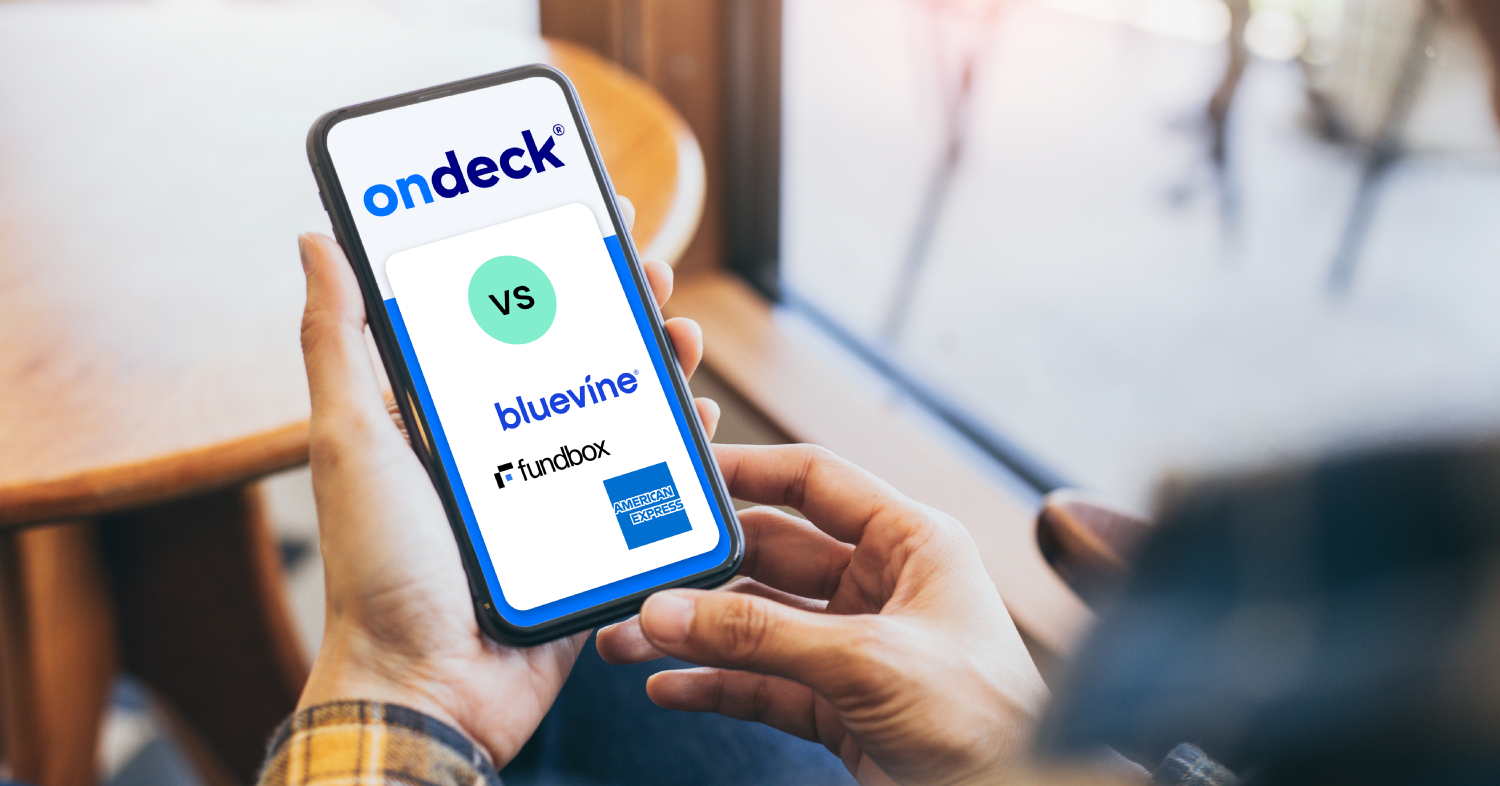Do Credit Checks Lower My Business Credit Score?
As a small business owner, your credit score is a crucial part of your financial identity. Establishing and maintaining strong business credit can help you negotiate better terms with suppliers, reduce insurance premiums, manage your operational expenses and even increase your appeal to potential partners. Additionally, many lenders look at your business credit profile to determine your eligibility for financing.
But what happens when a lender checks your credit? Does it impact your credit score?
The answer depends on a number of factors. Credit checks can be performed on both your business and personal credit. They can be hard checks or soft checks. And different business credit scores are impacted differently. We’ll clarify these points and help you understand the effect of credit checks on your business credit score.
Do Credit Checks for Business Financing Lower My Credit Score?
If you apply for business financing, a hard credit check on your personal credit has the potential to impact your personal credit score. Any negative impact that might occur generally happens when there are too many inquiries in a short period of time. Soft credit checks, on the other hand, typically do not impact your FICO® score, but different types of credit scores may treat these checks differently.
Hard credit checks of your business credit also have the potential to impact your business credit score — depending on the type of credit score. There are four main types of business credit score, and some of them take credit inquiries into account while others don’t.
Dun & Bradstreet’s PAYDEX score and Experian Business’s Intelliscore Plus generally are not impacted by credit checks. On the other hand, Equifax Business and FICO® SBSS scores may be impacted by credit checks.
What Is the Difference Between a Hard Credit Check and a Soft Credit Check?
Understanding the difference between a hard and soft check can help you manage your credit inquiries.
Hard credit checks. These typically occur when you apply for credit, such as a term loan or line of credit. The credit provider checks your credit history thoroughly, which could include your personal credit as well as your business credit. Hard inquiries on your personal credit file may impact your personal credit score. Hard inquiries on your business credit can impact some types of business credit scores while others generally are not affected.
Soft credit checks. Soft inquiries might happen when you check your own credit score or when a lender gathers an overview of your personal credit history. Soft checks generally do not affect your personal or business credit score.
What Are the Different Types of Business Credit Scores?
There are four major business credit bureaus: Experian, Equifax, FICO® and Dun & Bradstreet.
Factors that typically influence business credit scores include:
- Payment history and timeliness.
- Credit utilization rate.
- Length of credit history.
- Public records, including bankruptcies and judgments.
- New credit applications.
Each bureau has its own scoring system, so your score can vary from one bureau to another. A strong business credit score is typically considered to be in the top 20% of the scoring system’s range.
Experian Intelliscore
Experian has two versions of its score: Intelliscore Plus and Intelliscore Plus v2. Intelliscore Plus might consider personal credit details, particularly for newer businesses. Both models use a scale from 1 to 100. A score of 80 and above is considered most favorable. A credit check shouldn’t impact this score because it doesn’t take inquiries into account.
Equifax
Equifax also has two business credit scores: the Business Credit Risk Score and the Business Failure Score. Both scores take into account bankruptcies, liens, judgments, timely payment histories and more. They also look at your payment trends over the past year and compare them to the industry average. And, they take credit inquiries into consideration when calculating business credit scores — hard checks may impact your score.
The Business Credit Risk Score assesses probability that a business will experience a severe delinquency or charge-off over the next 12 months, defined as being 90 days overdue. The score ranges from 101 to 992.
The Business Failure Score predicts the likelihood of a business going bankrupt, formally or informally, over the next 12 months. This score ranges from 1,000 to 1,610.
FICO® Small Business Scoring Service (SBSS)
The FICO® Small Business Score℠ is the only business credit score that considers both personal and business credit information. Hard credit checks on either may have an impact on your scores. It includes the personal credit details of up to five business owners who hold a 20% stake or more. Additionally, it takes into account business financial details such as total revenue, employee count, business tenure, debts and more.
This type of business credit score is typically used by lenders when considering applicants for Small Business Administration (SBA) loans.
This scoring model ranges from 0 to 300. A minimum score of 160 to 165 is usually required by lenders. However, if you’re applying for an SBA loan, your score needs to be a minimum of 155.
Dun & Bradstreet’s PAYDEX® Score
In order for your creditors to report to Dun & Bradstreet (D&B), and ultimately generate a score, you’ll need to register for a D-U-N-S number first.
The PAYDEX® score is mostly based on the timeliness of your payments to creditors. Early and on-time payments help your score go up, while late payments can make your score go down. Payments overdue by 31 to 90 days will affect your score more than those overdue by 15 to 30 days. Hard credit checks usually do not affect this score.
The PAYDEX® score ranges from 0 to 100, and a score of 80 and above is generally considered good.
How Do I Build Business Credit?
The first step in building business credit is creating a business credit file. To do this, you’ll need to set up a formal business structure and obtain a federal Employer Identification Number (EIN). From there you can work to build a strong business credit profile that supports your business’s growth and stability — separate from your personal finances. This can take some time but is an important part of positioning your business for success.
Consider applying for a business credit card (and using it responsibly). Many credit card companies have a business credit card option. The card issuer reports to business credit bureaus, so on-time payments — ideally in full — demonstrate financial reliability. Borrow within your credit limit to keep a good credit utilization ratio.
Work with suppliers and vendors that report payments to business credit bureaus. Avoid making late payments as much as possible. Consistent, on-time payments are a cornerstone of building a positive credit history.
Regularly monitor your credit reports. Checking your business credit can help ensure accuracy and allow you to track your progress.
What Is a Business Credit Score?
Different from your personal credit score, the business credit score represents the financial health of your enterprise. It includes payment history, available credit, length of credit history and the variety of credit accounts. These factors create a score that lenders and creditors review to determine the financial reliability of your business.
Entrepreneurs will find that a good business credit score shows trustworthiness to potential investors and may lead to better loan terms. On the other hand, a low score could be a warning sign that might make it harder to get credit for your business.
What’s the Difference Between Personal Credit and Business Credit?
Like a personal credit report, a business credit report is designed to evaluate creditworthiness. But unlike personal credit, your business credit profile is linked to your business entity and measures the company’s creditworthiness.
Personal or consumer credit is tied to an individual and is primarily used by lenders and creditors to assess an individual’s ability to manage and repay personal debt. It’s based on personal financial history, including credit cards, loans and mortgages. You can request a free personal credit report through www.annualcreditreport.com.
Business credit scores are influenced by factors such as the business’s payment history with suppliers, credit utilization and the financial stability of the company. While personal credit may affect business credit (especially for small business startups), keeping these two separate as the business grows can help distinguish personal finances from business liabilities and vice versa.
Can I Get a Business Loan Without a Credit Check?
It’s very rare to get a true no credit check business loan. However, some lenders conduct soft credit checks instead of hard checks, which do not impact your credit score.
The Bottom Line
Some lenders check personal credit as well as business credit, which can result in a hard credit check. While hard inquiries can slightly lower your personal score temporarily, being strategic about when and how you apply for credit can minimize their impact.
DISCLAIMER: This content is for informational purposes only, and may contain errors or inaccuracies. OnDeck and its affiliates do not provide legal, financial, investment or tax advice.



